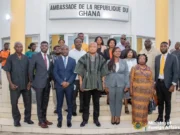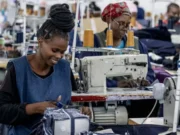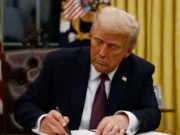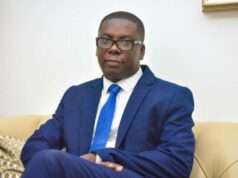Speaker of Parliament Alban Sumana Kingsford Bagbin has burst the bubble that some members of the House have been riding on regarding privileges and immunity with the “belief that an MP cannot be served with court processes”.
He indicated that immunity from service of processes on MPs is necessary to prevent the use of same to impede the work of Parliament.
He however cautioned that this should not be understood to mean Parliamentarians cannot be served at all with any processes from outside Parliament.
“I must bring to your attention the fact that the immunity enjoyed by the Speaker, Members of Parliament, and Clerk to Parliament are not absolute anytime, anywhere, and any day,” he stated
The Speaker addressed a matter of privileges and immunities of MPs as contained in Articles 117 and 118 of the Constitution following reports that some MPs declined or evaded service of court processes and documents while the House was on recess and were not attending or returning from any Parliamentary proceedings.
The situation reportedly led to some confrontation with court process servers and compelled some Justices to issue substituted service orders to ensure adjudication of cases before them.
In a statement to the House on Wednesday, Speaker Alban Bagbin indicated that the 1992 Constitution has provided for the Speaker, MPs and the Clerk to Parliament privileges and immunities that are absolutely necessary for the due execution of their functions and the power of the Parliament.
“These privileges are special rights enjoyed by the House collectively as a whole and by members individually, without which the members could not discharge their functions, and these privileges exceed those enjoyed by other bodies or individuals.
“This is to ensure that the Legislature is able to carry its constitutional duties without let or hindrance from judicial processes”, Mr Bagbin explained.
However, he stressed that the immunity granted by the Constitution can only be exercised when such specific functionary is on his way to, attending at or returning from, any proceedings of Parliament.
“In other words, Members of Parliament may only avail themselves of this immunity when Parliament is in session. Proceedings of the House have been defined to include sittings, meetings and activities of Parliament and its Committees.
“It follows therefore that while Parliament is not in session or the Speaker has not certified that a Member or Clerk to Parliament is attending to the business of Parliament, a Member of Parliament may not evade service of court process or refuse to appear as a court summoned witness in a court proceeding.
“Any such act would amount to a violation of Articles 117 and 118 of the Constitution and same would not be encouraged in this House,” he added.
He averred that as important as the privileges and immunities provided by the 1992 Constitution are to secure Parliament’s role in Ghana’s democracy, it also provides that the arms of government will be committed to ensuring their practices to promote a workable government and democracy.
Nonetheless, he cautioned that the constitutional privileges and immunities must not be abused nor asserted to frustrate its very purpose of promoting Ghana’s democracy.










































